Zinc is an important mineral that is required for many physiological functions in the human body. It is involved in immunological function, DNA synthesis, cell division, wound healing, and a variety of other vital processes. Including zinc-rich foods in your diet can improve your general health and well-being. There are various classic recipes in Indian cuisine that contain zinc-rich components. Let's look at some of them, including legumes and pulses, nuts and seeds, whole grains, dairy products, and seafood. It's crucial to remember that while zinc is necessary for optimal health, too much of it can be hazardous. The recommended daily zinc consumption varies according to age, gender, and individual needs. It is always a good idea to consult with a healthcare professional or a registered dietitian to determine your individual zinc needs and to ensure a balanced and healthy diet.
The Importance of Zinc: Nurturing Vital Functions and Health Benefits
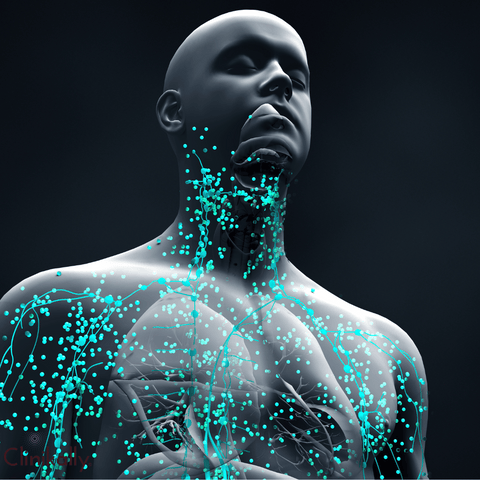
Zinc is an important mineral that helps maintain vital functions in the human body. It is involved in numerous physiological processes and is required for enzymes, proteins, and cells to function properly. Let us look at the significance of zinc and the health benefits it provides.
-
Function of Enzymes: Zinc contributes to the proper operation of many enzymes by acting as a co-factor. The body's biochemical processes, such as digestion, metabolism, and DNA synthesis, are all aided by enzymes. In order to ensure that these reactions are efficiently catalyzed, zinc is used.
-
Support for the Immune System: Zinc is well known for helping to maintain a strong immune system. It supports the integrity and performance of immune cells like neutrophils, NK cells, and T-cells. The body's ability to fight off infections and diseases depends on adequate zinc levels for immune cell maturation and development.
-
Growth and Development: Especially during times of rapid growth, like infancy, childhood, and adolescence, zinc is essential for growth and development. It participates in the processes of cell division, DNA synthesis, and protein synthesis, all of which are necessary for healthy growth, tissue repair, and development.
-
Skin Health and Wound Healing: Zinc is essential for promoting wound healing and preserving healthy skin. It is involved in collagen synthesis, a protein that provides structure and strength to the skin. Zinc also supports the immune response at the site of a wound, facilitating the healing process.
-
Cognitive Function: Zinc is important for cognitive function and brain health. It is involved in the synthesis and regulation of neurotransmitters, which are required for proper brain function, learning, memory, and mood regulation. Zinc deficiency has been linked to cognitive impairments and mood disorders.
-
Antioxidant Activity: Zinc acts as an antioxidant in the body, aiding in the neutralization of potentially harmful free radicals. Free radicals are unstable molecules that can damage cells and cause oxidative stress. By acting as an antioxidant, zinc helps protect cells from oxidative damage and supports overall cellular health.
-
Reproductive Health: Zinc is essential for both male and female reproductive health. In males, zinc is involved in testosterone production, sperm development, and fertility. In females, zinc is important for proper ovarian function, hormone regulation, and reproductive health.
-
Metabolism and Nutrient Absorption: Zinc is involved in carbohydrate, protein, and fat metabolism. It aids in the conversion of food into energy and is required for proper nutrient absorption and utilization, including vitamins A and D.
Supporting the Immune System: Zinc's Role in Strengthening the Body's Defense Mechanism
Zinc helps to boost and build the immune system, which is in charge of protecting the body from harmful microorganisms and illnesses. ou can get an online dermatologists consultation for expert advice. Here are some of the ways zinc helps the immune system work properly:
-
Immune Cell Development and Function: Zinc is essential for the development and function of various immune cells, including neutrophils, natural killer cells, macrophages, and T-cells. These cells help the body recognize and get rid of pathogens, infected cells, and foreign objects. In order for these immune cells to successfully carry out their immune responses, zinc aids in their maturation and activation.
-
Production of Antibodies: The immune cells known as B-cells produce proteins known as antibodies, and zinc is necessary for both their synthesis and operation. Antibodies recognise and bind to specific pathogens, marking them for eradication by other immune cells. For the body to produce high-caliber antibodies that can successfully neutralize pathogens, zinc levels must be adequate.
-
Antiviral Defence: Zinc possesses antiviral traits and has been demonstrated to prevent the replication of numerous viruses. It can prevent viral entry and attachment to host cells, stop viral replication, and boost immune cell activity against viral infections. The antiviral properties of zinc are particularly pertinent when discussing respiratory viral infections like the flu or the common cold.
-
Regulation of Inflammation: Zinc aids in the control of inflammation, a typical immune reaction to injury or infection. Chronic inflammation can be harmful to the body, whereas acute inflammation is essential for battling infections. By controlling the synthesis and activity of inflammatory molecules in the body, zinc supports the maintenance of a healthy inflammatory response.
-
Antioxidant defence: Superoxide dismutase (SOD), one of the body's many antioxidant enzymes, is made up of zinc. These enzymes aid in the scavenging of damaging free radicals and oxidative stress, which can harm cells and impair immune performance. By acting as an antioxidant, zinc protects immune cells from oxidative damage, thereby supporting their optimal function.
-
Tissue Repair and Wound Healing: The immune system is essential for tissue healing and wound healing. Inflammation, collagen synthesis, and immune cell function are just a few of the stages of wound healing that zinc is involved in. It supports effective wound healing by aiding in the development of new blood vessels, collagen deposition, and the regeneration of damaged tissues.
Essential for Growth and Development: How Zinc Plays a Key Role in Children's Health
Zinc is essential for children's growth and development. It is a necessary mineral for several physiological processes that lead to good health. Here's how zinc helps youngsters grow and develop:
-
Physical Growth: Zinc is required for proper physical growth during childhood and adolescence. It participates in cell division, DNA synthesis, and protein synthesis, all of which are necessary for tissue growth, bone development, and overall body growth. Adequate zinc intake promotes bone, muscle, and organ growth.
-
Cognitive Development: Zinc is crucial for children's brain health and cognitive development. It is involved in the synthesis and regulation of neurotransmitters, which has an impact on cognition in general and on learning, memory, and attention. Adequate zinc levels promote optimal cognitive function and healthy brain development.
-
Immune System Support: Zinc is essential for supporting the healthy operation of a child's developing immune system. T-cells, B-cells, and natural killer cells, which are in charge of warding off infections and diseases, can develop and become active with the aid of zinc. Adequate zinc intake can boost the immune system and lower infection risk in kids.
-
Healing of Wounds: Because of their active lifestyles, children are more likely to sustain minor wounds and injuries. The process of healing a wound requires zinc. It encourages the growth of new tissue, the synthesis of collagen, and immune cell activity at the site of injury, enabling more rapid and complete healing.
-
Taste and Appetite Regulation: Zinc helps children's appetite and taste perception. It contributes to the development of taste buds and the hormones that control appetite and food intake. Sufficient zinc levels help maintain a healthy appetite and support proper growth and nutrition.
-
Nutrient Absorption: Zinc is necessary for the absorption and utilization of various nutrients, including iron and vitamin A. Iron is required for the formation of red blood cells and the transport of oxygen, whereas vitamin A is required for vision, immune function, and growth. Adequate zinc levels support overall growth and development by optimizing the absorption and utilization of these and other nutrients.
Metabolism and Wound Healing: Zinc's Impact on Cellular Processes and Tissue Repair
Zinc is essential for many cellular processes, but it is especially important for metabolism and wound healing. Let us look at how zinc affects these processes and helps with tissue repair:
-
Metabolism: Zinc is involved in the metabolism of carbohydrates, proteins, and fats. It aids in energy production and utilization by participating in the synthesis and breakdown of these macronutrients. Zinc is required for the activity of many enzymes in metabolic pathways, including those that convert food into usable energy.
-
Protein Synthesis: Proteins serve as the foundation for tissues, enzymes, hormones, and antibodies. Zinc is required for protein synthesis, the process of combining amino acids to form functional proteins. A sufficient zinc level promotes the production of proteins needed for growth, development, and tissue repair.
-
DNA and RNA Synthesis: Zinc is essential for DNA and RNA synthesis, which are fundamental processes involved in cellular growth and division. The activity of enzymes involved in DNA replication and repair, which maintain the integrity of genetic material, depends on zinc. In the regulation and expression of genes, it also functions.
-
Collagen Synthesis: Collagen is a protein that gives tissues like the skin, bones, tendons, and blood vessels structural support. Zinc acts as a cofactor for enzymes involved in collagen synthesis. It helps stabilize the structure of collagen molecules and promotes the formation of cross-links, which contribute to tissue strength and integrity.
-
Wound Healing: Zinc is essential for wound healing and tissue repair. When a wound occurs, zinc is involved in several stages of healing. It promotes the inflammatory response, which aids in the removal of debris and the fight against infection. Zinc promotes the growth of tissue regeneration cells such as fibroblasts and endothelial cells. It also aids in angiogenesis, the formation of new blood vessels required for the delivery of oxygen and nutrients to healing tissue. Additionally, zinc aids in the synthesis of collagen and other extracellular matrix components, facilitating wound remodeling and strengthening.
Zinc-Rich Foods in Indian Cuisine: Exploring Vegetarian and Non-Vegetarian Sources
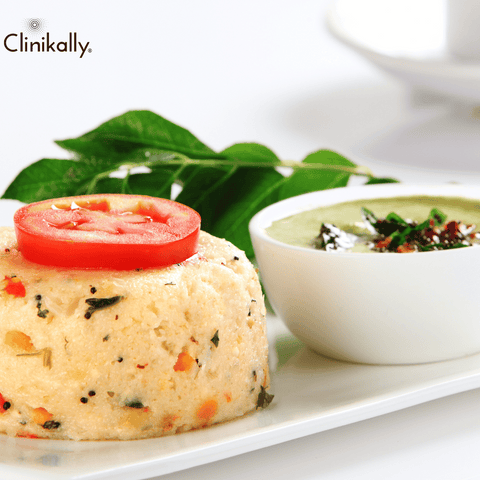
Indian cuisine contains a variety of zinc-rich vegetarian and non-vegetarian options. Here are some zinc-rich foods that are commonly used in Indian cooking:
Vegetarian Sources:
-
Legumes and Pulses: Chickpeas (garbanzo beans), lentils (red, green, and black lentils), kidney beans, black-eyed peas, and split peas are all high in zinc. They can be made into chana masala, dal (lentil curry), rajma (kidney bean curry), and sambar.
-
Nuts and Seeds: Nuts and seeds such as flaxseeds, almonds, cashews, pumpkin seeds, sesame seeds, and sesame are high in zinc. They can be used in a variety of desserts and sweets, curries, and snacks.
-
Whole Grains: Whole grains like quinoa, wheat, oats, and rice all contain zinc. They can serve as the foundation for a variety of Indian dishes, including upma, quinoa pulao, roti, and rice pilaf.
-
Dairy Products: Dairy products such as milk, yoghurt, and cheese contain zinc as well as other essential nutrients. They can be eaten on their own or in dishes such as lassi, raita, paneer tikka, and cheesy vegetable curry.
Non-Vegetarian Sources:
-
Seafood: Seafood, particularly shellfish, is high in zinc. Shrimp, crab, mussels, and oysters are all good options. Indian seafood dishes such as prawn curry, fish fry, and tandoori fish contain zinc as well as omega-3 fatty acids and other nutrients.
-
Meat: Zinc-rich meats include beef, lamb, and poultry (chicken and turkey). Indian meat dishes such as chicken curry, mutton biryani, and kebabs can help you get enough zinc.
-
Eggs: Eggs are a versatile and nutritious zinc source. They can be found in a variety of Indian dishes such as egg curry, omelets, and egg biryani.
-
Organ Meats: Zinc is abundant in organ meats such as liver and kidney. Popular dishes in Indian cuisine that contain zinc include liver curry and kidney masala.
Legumes and Pulses: Nutrient-Dense Zinc Sources for Vegetarian Diets
Legumes and pulses are high in nutrients and a good source of zinc in vegetarian diets. These plant-based meals are not only high in zinc but also include a variety of other important elements. Chickpeas (Garbanzo Beans), lentils, kidney beans, black-eyed peas, and split peas are among the legumes and pulse high in zinc. Incorporating these legumes and pulses into your vegetarian diet not only provides a rich source of zinc, but also other nutrients such as dietary fibre, plant-based protein, iron, and B vitamins. Soak, sprout, or ferment these items before cooking to increase zinc absorption. It is important to note that zinc content varies slightly depending on factors like variety, processing, and cooking methods. Including a variety of legumes and pulses in your meals can help you maintain a balanced and nutrient-dense vegetarian diet. If you have specific concerns about your zinc intake or require personalised dietary advice, it is best to consult with a healthcare professional or a registered dietitian.
Nuts and Seeds: Crunchy Snacks Packed with Zinc and Other Essential Nutrients
Nuts and seeds are not only crunchy and delicious, but also high in critical elements like zinc. They are great snacks and can be used in a variety of cuisines. Zinc-rich nuts and seeds include pumpkin seeds, sesame seeds, hemp seeds, almonds, cashews, and flaxseeds. Incorporating these nuts and seeds into your diet delivers not just zinc but also a variety of other critical elements such as healthy fats, fibre, vitamins, and minerals. However, because of their high-calorie content, they should be consumed in moderation. Including a variety of nuts and seeds in your diet will help you maintain a well-balanced and nutrient-dense diet. Just keep in mind that every person has different needs for zinc depending on things like age, sex, and general health. It is always a good idea to speak with a medical professional or a registered dietitian for personalized advice if you have particular worries or dietary requirements.
Incorporating Whole Grains: Boosting Zinc Intake with Nutritious Cereal Options
Incorporating whole grains into your diet is an excellent method to increase your zinc consumption while reaping the nutritional advantages. Wheat germ, quinoa, oats, brown rice, amaranth, and buckwheat are some healthful whole-grain cereal options that can help enhance your zinc consumption. Incorporating these whole grains into your diet not only increases your zinc consumption but also delivers fibre, B vitamins, and minerals. To maximize the nutritional benefits of whole grains, boil them thoroughly, soak them, or sprout them as necessary to improve zinc absorption. It is important to remember that the amount of zinc in whole grains can vary slightly depending on elements like variety and processing techniques. A registered dietitian or healthcare professional should be consulted if you have particular dietary needs or concerns in order to receive individualized advice.
Dairy Products and Zinc: Exploring the Zinc Content in Milk, Cheese, and Yogurt
Your intake of zinc can be increased by consuming dairy products like milk, cheese, and yoghurt, which also contain other vital nutrients. The zinc content of these dairy products is as follows:
-
Milk: Milk contains 0.4–0.5 mg of zinc per 100 grammes, making it a good source of zinc. It also contains a lot of protein, calcium, vitamin D, and other important nutrients. Milk is a versatile food that can be eaten on its own, as the base for other drinks like smoothies, or added to a variety of dishes like cereal, desserts, and baked goods.
-
Cheese: A concentrated source of nutrients, such as zinc, can be found in cheese. The zinc content of cheese varies according to variety and type. Hard cheeses, such as cheddar and Swiss, generally contain more zinc than soft cheeses. Cheese contains about 2-3 mg of zinc per 100 grammes on average. However, because cheese is high in saturated fat and sodium, it should be consumed in moderation as part of a balanced diet.
-
Yoghurt: Yoghurt is another dairy product that can help you get enough zinc. It contains about 0.8-1 mg of zinc per 100 grammes. Yoghurt is also high in probiotics, calcium, and protein. Enjoy yoghurt on its own, in smoothies, or as a base for dressings and dips.
While dairy products can be a good source of zinc, it is important to consider your personal dietary needs as well as any lactose intolerance or dairy allergies. If you are lactose intolerant or follow a dairy-free diet, you can get zinc from plant-based milk fortified with zinc or other zinc-rich foods like legumes, nuts, and seeds. It is important to note that the zinc content of dairy products can vary slightly depending on factors like processing methods, fortification, and animal diet. If you have specific questions about your zinc intake or dietary needs, speak with a healthcare professional or a registered dietitian who can provide personalized advice based on your unique needs and circumstances.
Seafood and Zinc: Including Zinc-Rich Fish and Shellfish in Your Diet
Seafood, particularly fish and shellfish, is high in zinc. Zinc-rich seafood can help you meet your zinc needs while also providing a variety of other essential nutrients. Here are a few examples of seafood with high zinc content:
-
Oysters: Oysters are one of the best sources of zinc. They contain a significant amount of zinc, ranging from 16-40 mg per 100 grammes depending on the variety. Oysters can be eaten raw, grilled, or cooked in a variety of seafood dishes.
-
Crab: Crab is another high-zinc seafood option. It contains 4-7 mg of zinc per 100 grammes, depending on the type of crab. Enjoy crab as it is, steamed, boiled, or in dishes like crab cakes and crab curry.
-
Shrimp: A well-liked seafood option, shrimp has a moderate zinc content, providing about 1-2 mg per 100 grammes. Shrimp can be used in pasta dishes, salads, stir-fries, stir-frying, and grilling.
-
Mussels: Mussels are a nutrient-dense, zinc-rich shellfish. They contain approximately 2-3 mg of zinc per 100 grammes. Mussels can be steamed, grilled, added to soups, or served with pasta or rice.
-
Salmon: Salmon is a fatty fish that has numerous health benefits. While it does not contain as much zinc as shellfish, it does contain a moderate amount, with approximately 0.5-1 mg of zinc per 100 grammes. Salmon tastes great baked, grilled, or pan-seared.
-
Sardines: Sardines are small, oily fish that are high in nutrients, including zinc. They contain about 1-2 mg of zinc per 100 grammes. Sardines can be enjoyed grilled, canned, or used in salads and sandwiches.
Enhancing Zinc Absorption: Tips and Strategies for Optimal Zinc Utilization
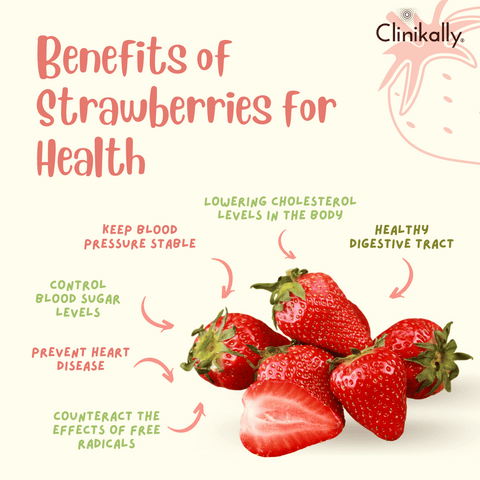
Optimizing zinc absorption is critical to ensuring that your body uses this essential mineral effectively. Here are some strategies and tips for increasing zinc absorption:
-
Combine Zinc and Vitamin C: Consuming vitamin C-rich foods alongside zinc-rich foods can improve zinc absorption. Vitamin C aids in the conversion of zinc into a more bioavailable form for absorption. Increase your vitamin C intake by including fruits like oranges, strawberries, kiwi, and citrus juices in your meals or snacks.
-
Soak, sprout, or ferment: Legumes, nuts, and seeds naturally contain compounds like phytates, which can inhibit zinc absorption. Soaking, sprouting, or fermenting these foods before consumption can help reduce phytate levels and increase zinc bioavailability. Soaking legumes overnight and rinsing them before cooking, for example, can be beneficial.
-
Include Animal Protein: Animal proteins, such as those found in meat, seafood, and dairy products, can help with zinc absorption. The presence of amino acids, particularly cysteine and methionine, found in animal proteins aids zinc absorption. Vegetarians and vegans can improve zinc absorption by combining plant-based protein sources with vitamin C-rich foods.
-
Avoid Excessive Fibre with Zinc-Rich Meals: While dietary fibre is beneficial to overall health, eating too much fibre with zinc-rich meals may reduce zinc absorption. High-fiber foods, particularly bran and whole grains, contain phytates, which can inhibit zinc absorption. It is best to limit your fibre intake during meals due to the high zinc content.
-
Consider Cooking Techniques: Certain cooking techniques can affect zinc bioavailability. For example, boiling and simmering foods in water may result in some zinc loss. Choose cooking techniques that help preserve the zinc content of foods, such as steaming, baking, and roasting.
-
Reduce Alcohol Consumption: Too much alcohol can lead to impaired zinc absorption and increased body excretion of zinc. It is advised to drink alcohol in moderation if you do so in order to support optimal zinc absorption.
-
Meet Your Protein Needs: For optimum zinc absorption, a sufficient protein intake is crucial. The synthesis of transport proteins that transport zinc through the intestinal cells for absorption is supported by eating an adequate amount of protein-rich foods, whether from animal or plant sources.
-
Avoid Too Much Iron and Copper: Too much iron and copper can prevent your body from absorbing zinc. Although these minerals are necessary, maintaining a balance is important. Avoid taking excessive iron or copper supplements without a doctor's supervision.
Pairing Zinc-Rich Foods with Vitamin C Sources for Improved Absorption
The body can more easily absorb zinc if foods high in zinc are combined with sources of vitamin C. Zinc is made more bioavailable by vitamin C, which encourages absorption. Here are some examples of foods high in zinc and sources of vitamin C that can be combined:
-
Legumes and Pulses with Citrus Fruits: Combine citrus fruits high in vitamin C, such as oranges, lemons, or grapefruits, with zinc-rich legumes, such as chickpeas, lentils, or kidney beans. For instance, you can make a lentil salad with a citrus vinaigrette or add orange segments to a chickpea curry.
-
Berries and Nuts: Combine berries high in vitamin C, such as strawberries, raspberries, or blueberries, with nuts and seeds high in zinc, such as pumpkin seeds, sesame seeds, or almonds. Enjoy a trail mix of nuts, seeds, and dried berries, or top a yoghurt and seed bowl with berries.
-
Whole Grains and Bell Peppers: Combine bell peppers, which are high in vitamin C, with whole grains that are high in zinc, such as quinoa, oats, or brown rice. You can stuff bell peppers with a quinoa and vegetable filling or make a colorful stir-fry with cooked grains, bell peppers, and other vegetables.
-
Dairy Products with Kiwi: Combine zinc-rich dairy products like milk, cheese, or yoghurt with vitamin C-rich kiwi fruit. Add kiwi slices to your yoghurt or serve a kiwi and cheese platter as a snack or dessert.
-
Tomato-based Sauces for Seafood: Pair zinc-rich seafood, such as shrimp, mussels, or salmon, with tomato-based sauces. Tomatoes are an excellent source of vitamin C. Consider grilled salmon with tomato salsa or shrimp pasta in tomato sauce.
-
Fresh Fruits and Fortified Cereals: Combine zinc-rich fortified cereals with vitamin C-rich fresh fruits. To make a nutritious and flavorful breakfast cereal, add slices of strawberries, kiwi, or oranges.
Optimizing Zinc Bioavailability: The Role of Cooking Techniques and Food Preparation
Cooking techniques and food preparation methods can have an impact on zinc bioavailability. Here are some things to think about to improve zinc bioavailability in your meals:
-
Cooking Methods: Certain cooking methods can help foods retain zinc content while making them more absorbable. Here are some cooking techniques that may be useful:
-
Steaming: Steaming foods helps preserve their nutrient content, including zinc. It is a gentle cooking technique that reduces nutrient loss.
-
Baking and roasting: These methods help to retain zinc while also adding flavor and texture to foods. Excessive cooking time should be avoided to prevent nutrient degradation.
-
Sautéing and stir-frying: These quick cooking methods can help retain zinc, especially when using little oil and cooking for a short period of time over high heat.
-
Reduce Overcooking: Overcooking foods, particularly those high in zinc, can result in nutrient loss. To preserve zinc content, avoid long cooking times and high temperatures. Cook foods until they are just done, keeping color, texture, and nutrients intact.
-
Avoid Excessive Processing: High-processed foods may be subjected to treatments that reduce zinc content and bioavailability. Choose minimally processed or whole foods to maximize zinc intake and bioavailability.
-
Soaking, sprouting, or fermenting: As previously stated, legumes, nuts, and seeds contain phytates, which can inhibit zinc absorption. These foods can be processed through sprouting, fermentation, or soaking to lower phytate levels and increase zinc bioavailability. Sprouting seeds and grains prior to consumption or soaking legumes overnight and rinsing them before cooking can improve zinc absorption.
-
Acidic Marinades and Citrus Juices: Before cooking, marinating zinc-rich foods, such as meat or seafood, in acidic marinades or citrus juices can improve the bioavailability of zinc. As a result of the acid's assistance in breaking down proteins and phytates, cooking results in better zinc absorption.
-
Combine with Zinc Enhancers: Some foods and ingredients can help the body absorb zinc better. For instance:
-
Animal proteins: Due to their amino acid composition, eating animal proteins along with sources of plant-based zinc can enhance zinc absorption.
-
Vitamin C-rich foods: Combining vitamin C-rich foods, such as citrus fruits or tomatoes, with zinc-rich foods can improve zinc absorption.
-
Foods that have been fermented: Consuming yoghurt or sauerkraut along with foods that are high in zinc can promote the best zinc absorption.
Combining Zinc with Copper and Other Nutrients for Balanced Nutritional Support
Consider the interplay of several nutrients, such as zinc and copper, when providing balanced nutritional assistance. Zinc and copper are both vital elements with important roles in the body. When combining zinc with copper and other elements for the best nutritional support, keep the following points in mind:
-
Zinc-Copper Balance: It is crucial to keep zinc and copper in the right proportion. In the body, these minerals compete for absorption, and an imbalance can have negative effects on health. The recommended zinc-to-copper ratio is usually around 8:1 or 10:1. This means that for every 8 or 10 zinc units consumed, one unit of copper should be consumed.
-
Whole Food Approach: Adopting a whole food diet can help ensure a balanced intake of different nutrients, such as zinc and copper. The wide variety of nutrients provided by eating a variety of whole foods, such as fruits, vegetables, whole grains, legumes, nuts, seeds, dairy products, and lean proteins, promotes overall health.
-
Multivitamin and Mineral Supplements: It is important to speak with a medical professional or a registered dietitian if you are thinking about taking zinc or copper supplements. They can guide you on the appropriate dosage and help ensure a balanced intake of these minerals. Some supplements contain both zinc and copper in balanced amounts to support overall nutritional needs.
-
Nutrient-Dense Foods: To support a balanced intake of zinc, copper, and other essential nutrients, include a range of nutrient-dense foods in your diet. Lean meats, seafood, legumes, whole grains, nuts, seeds, fruits, and vegetables are a few examples. These foods offer a variety of phytonutrients, vitamins, and minerals that support overall health.
-
Absorption Enhancers and Inhibitors: Take into account elements that may influence the absorption of zinc, copper, and other nutrients. For instance, phytates, which are present in some plant foods, can prevent the body from absorbing copper and zinc. However, consuming vitamin C-rich foods along with foods high in zinc can improve zinc absorption. It's important to be mindful of these interactions when planning meals and snacks.
-
Individual Nutrient Requirements: Individual nutrient requirements vary depending on factors such as age, gender, health conditions, and lifestyle. It is best to consult with a healthcare professional or a registered dietitian who can assess your specific needs and provide personalized advice on achieving a balanced nutrient intake.
Addressing Zinc Deficiency: Identifying Symptoms and Incorporating Zinc-Rich Foods
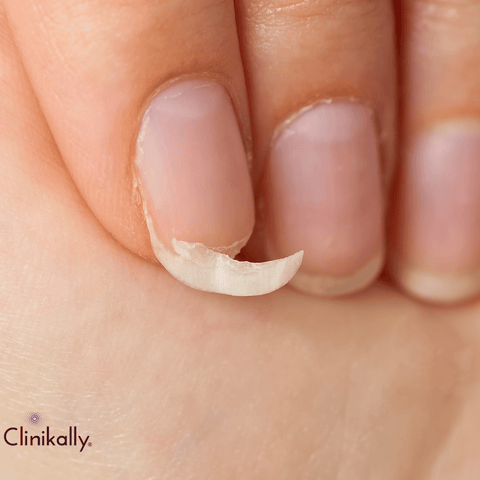
Zinc deficiency can result in a number of health issues, so it is critical to recognize the symptoms and take appropriate action. Here's how to spot zinc deficiency symptoms and incorporate zinc-rich foods into your diet:
Symptoms of Zinc Deficiency:
-
Frequent infections, delayed wound healing, and extended illness are signs of immune system dysfunction.
-
Reduced senses of taste and smell cause a decrease in appetite, which in turn causes weight loss.
-
Delay in adolescent sexual maturation and poor growth and development in children and adolescents.
-
Skin issues and hair loss include brittle nails, rashes, dermatitis, and thinning hair.
-
Memory, learning, and attention problems are symptoms of impaired cognitive function.
-
Diarrhoea, loss of appetite, and malabsorption are symptoms of digestive issues.
Incorporating Zinc-Rich Foods: You can increase your intake of foods that are high in zinc to treat a zinc deficiency. Here are some illustrations:
-
Animal-based Sources: Include seafood in your meals, such as salmon, oysters, crab, and shrimp. Other excellent sources of zinc include poultry, lean meats like beef and lamb, and dairy foods like milk, cheese, and yoghurt.
-
Plant-based Sources: Black-eyed peas, kidney beans, lentils, and chickpeas are some excellent vegetarian sources of protein. Zinc is also abundant in nuts and seeds like cashews, almonds, sesame seeds, and pumpkin seeds. You can get more zinc by eating whole grains like brown rice, quinoa, and oats.
-
Foods with added zinc: Some foods have added zinc to help meet daily needs. If bread, cereals, or other products are fortified with zinc, check the labels.
-
Nutritional Yeast: Also known as deactivated yeast, nutritional yeast is frequently fortified with zinc and other nutrients. It can be used as a cheese substitute in recipes or as a garnish on food.
-
Zinc supplements: If you have a zinc deficiency or are unable to satisfy your needs for zinc through diet alone, you may want to think about taking zinc supplements. Before beginning any supplementation, it is crucial to speak with a medical professional to establish the right dosage and duration.
Recognizing the Signs of Zinc Deficiency and Its Impact on Health
Zinc deficiency can have serious consequences for an individual's health and well-being. The recognition of zinc deficiency symptoms and signs is critical for early detection and intervention. The following are some common symptoms and potential health effects of zinc deficiency:
-
Impaired immune function: Zinc is necessary for a strong immune system. Immune-related symptoms of zinc deficiency could include:
-
Frequent infections, such as respiratory tract infections, the flu, or the common cold.
-
Longer times to recover from illnesses and slow wound healing.
-
Increased risk of contracting infections.
-
Poor Growth and Development: Zinc is essential for growth and development, particularly in children. In this regard, symptoms of zinc deficiency may include:
-
Children's growth is slowed, and their height is stunted.
-
Sexual maturation in adolescents is delayed.
-
Appetite Loss and Weight Loss: Zinc deficiency can impair the senses of taste and smell, resulting in a loss of appetite. This can lead to weight loss or difficulty maintaining healthy body weight.
-
Hair Loss and Skin Issues: Zinc is essential for maintaining healthy hair, skin, and nails. In this area, signs of zinc deficiency may include:
-
Thinning hair or hair loss.
-
Brittle nails and white spots on the nails.
-
Skin rashes, dermatitis, or poor wound healing.
-
Cognitive and behavioral issues: Zinc is required for normal brain function and cognitive development. Symptoms of zinc deficiency that affect cognition and behaviour include:
-
Impaired memory, learning difficulties, or inability to concentrate.
-
Mood swings or irritability are examples of behavioural issues.
-
Digestive Issues: Zinc deficiency can have an impact on digestive health, resulting in symptoms such as:
-
Diarrhoea or gastrointestinal disturbances on a regular basis.
-
Loss of appetite and weight.
-
Impaired nutrient absorption.
Dietary Strategies to Combat Zinc Deficiency and Maintain Optimal Zinc Levels
Combating zinc deficiency and maintaining optimal zinc levels can be accomplished through dietary strategies that emphasize zinc intake and zinc absorption. Here are some dietary strategies to think about:
-
Consume Zinc-Rich Foods: Include the following zinc-rich foods in your diet:
-
Animal-based sources include seafood (oysters, crab, shrimp, and fish), poultry, lean meats (beef, lamb), and dairy products (milk, cheese, and yoghurt).
-
Plant-based sources include legumes and pulses (chickpeas, lentils, kidney beans), nuts and seeds (pumpkin seeds, sesame seeds, almonds, cashews), and whole grains (quinoa, oats, brown rice).
-
Prioritise Bioavailable Sources: Phytates and other compounds in some foods can inhibit zinc absorption. Choose zinc-rich foods by soaking, sprouting, or fermenting legumes, nuts, and seeds. Choose whole grains and fortified foods that have been processed in a way that increases zinc bioavailability.
-
Combine with Enhancers: Combine zinc-rich foods with zinc-absorption enhancers. Vitamin C-rich foods (citrus fruits, berries, and bell peppers) can enhance zinc absorption when consumed alongside zinc-rich foods. A plant-based diet that includes animal protein can help the body absorb zinc.
-
Avoid Inhibitors: Limit your intake of substances that can interfere with zinc absorption. Phytates, which are found in whole grains, legumes, and some nuts and seeds, can inhibit zinc absorption. Oxalates, which are found in foods such as spinach and rhubarb, can also interfere with zinc absorption. While these foods are nutritious, it is critical to balance them with other zinc-rich foods and enhancers.
-
Moderate Alcohol Consumption: Excessive alcohol consumption can impair zinc absorption and increase zinc excretion. If you consume alcohol, do so sparingly to promote effective zinc absorption.
-
Consider Supplementation: If you have a zinc deficiency or are unable to meet your needs through diet alone, zinc supplements may be advised. However, it is crucial to seek advice from a medical professional or a registered dietitian to establish the right dosage and duration based on your individual requirements.
-
Diet: Make sure to eat a balanced, varied diet that contains a variety of nutrients. A balanced diet rich in protein, vitamins, and minerals, including zinc, supports overall health and nutrient absorption.
-
Regular Health Checkups: Routine health examinations can assist in detecting potential nutrient deficiencies, such as zinc deficiency. The appropriate dietary adjustments or supplementation, if required, can be determined by tracking your zinc levels through blood tests and discussing any concerns with a healthcare provider.
Zinc Supplements: Exploring the Role of Supplements in Meeting Zinc Requirements
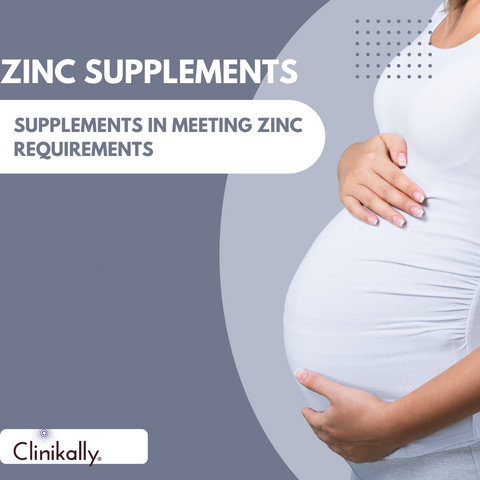
Zinc supplements can help people who have trouble getting enough zinc from their diets alone or who have been diagnosed with a zinc deficiency meet their zinc needs. Here are some important things to think about in relation to the function of zinc supplements:
-
Zinc Deficiency and Supplementation: Zinc deficiency can be brought on by insufficient dietary intake, problems with malabsorption, specific medical conditions, or increased zinc needs (like those that arise during pregnancy or breastfeeding). If zinc deficiency is identified, a medical professional may suggest taking zinc supplements to make up for the deficiency.
-
RDA (Recommended Daily Allowance): The RDA for zinc varies depending on age, gender, and life stage. For example, the RDA for adult men is around 11 mg, while it is around 8 mg for adult women. Pregnant and breastfeeding women require more zinc. It is critical to consult with a healthcare professional to determine the appropriate dosage based on individual needs.
-
Types of Zinc Supplements: Zinc supplements are available in various forms, including zinc gluconate, zinc citrate, zinc sulfate, and zinc picolinate. The bioavailability and absorption rates of these forms vary. Zinc picolinate and zinc citrate are thought to be more bioavailable than zinc sulphate. Consult a healthcare professional or pharmacist to determine the best zinc supplement for you.
-
Zinc Interactions and Absorption: A number of factors influence zinc absorption. Excess iron, calcium, or copper consumption, for example, can inhibit zinc absorption. Additionally, certain drugs, such as antibiotics and diuretics, may reduce zinc absorption. To ensure appropriate zinc absorption, inform your doctor about any drugs or supplements you are taking.
-
Potential Side Effects and Precautions: While zinc supplements are generally safe when taken as directed, excessive zinc consumption can have negative consequences. Very high zinc doses can cause nausea, vomiting, stomach cramps, and diarrhoea. Excessive zinc consumption over time can also impair copper absorption. Before beginning any supplementation regimen, it is critical to follow the recommended dosage and consult with a healthcare professional.
-
Personalized Counseling: Individual zinc requirements vary depending on factors such as age, gender, health conditions, and lifestyle. Working with a healthcare professional or a registered dietitian is essential for determining whether zinc supplementation is required, determining the appropriate dosage, and tracking your zinc levels over time.
When to Consider Zinc Supplements: Understanding the Need for Supplementation
Zinc supplementation may be considered in certain situations where dietary intake or specific circumstances indicate a potential need. Here are some situations in which zinc supplements may be beneficial:
-
Zinc Deficiency: Zinc supplementation may be recommended if you have been diagnosed with a zinc deficiency through blood tests or clinical assessments. Deficiencies can occur as a result of insufficient dietary intake, malabsorption problems, or increased zinc requirements.
-
Inadequate Zinc Intake: People with conditions that prevent zinc absorption, limited access to foods rich in zinc, or restrictive diets (such as vegan or vegetarian diets with low zinc bioavailability) may have trouble meeting their zinc needs through diet alone. In such circumstances, supplementation may be taken into consideration to ensure adequate zinc intake.
-
Increased Zinc Needs: Some life stages and ailments may cause an increase in zinc needs. Pregnancy and lactation are examples, as are growth and development and intense physical activity.
-
Zinc-Depleting Conditions: Certain medical conditions or medications can deplete zinc levels or interfere with zinc absorption. In such cases, zinc supplementation may be beneficial. Examples include gastrointestinal disorders (celiac disease, Crohn's disease), malabsorption syndromes, and long-term use of medications that interfere with zinc absorption.
-
Zinc and Immune Support: Zinc is essential for maintaining a healthy immune system. Some people may consider taking zinc supplements to help their immune systems, especially during times of increased susceptibility to infections or during the cold and flu season. However, it is important to note that the effect of zinc supplementation on immune function varies, and more research is needed in this area.
Choosing Zinc Supplements: Different Forms and Dosages Available in the Market
Zinc supplements are available in a variety of forms and dosages to meet the needs of each individual. Here's an overview of the various forms and dosages of zinc supplements that are commonly available on the market:
-
Zinc Gluconate: Zinc gluconate is a common form of zinc supplement. It is well-tolerated by the body and easily absorbed. It typically contains 13% elemental zinc. Dosages vary, but common doses range from 15 mg to 50 mg per tablet or capsule.
-
Zinc Citrate: Another popular type of zinc supplement is zinc citrate. It is highly bioavailable and well absorbed in general. Zinc citrate contains approximately 34% elemental zinc. Zinc citrate dosages typically range from 15 mg to 50 mg per tablet or capsule, just like zinc gluconate.
-
Zinc picolinate: One of the most bioavailable forms of zinc is zinc picolinate. It contains approximately 20% elemental zinc. Zinc picolinate comes in a variety of dosages, ranging from 15 mg to 50 mg per tablet or capsule.
-
Zinc Sulphate: Although zinc sulphate is less bioavailable than other forms of zinc supplementation, it is still effective in treating zinc deficiencies. It contains approximately 23% elemental zinc. Zinc sulphate dosages range from 15 mg to 220 mg per tablet or capsule, with lower dosages frequently used for general supplementation and higher dosages used for specific deficiencies under medical supervision.
-
Chelated Zinc: Chelated zinc is zinc that has been bound to amino acids to improve absorption. Zinc glycinate, zinc methionine, and zinc orotate are a few examples. Chelated zinc is generally well absorbed, but the elemental zinc content varies depending on the compound.
Combining Food Sources and Supplements: Finding the Right Balance for Zinc Intake
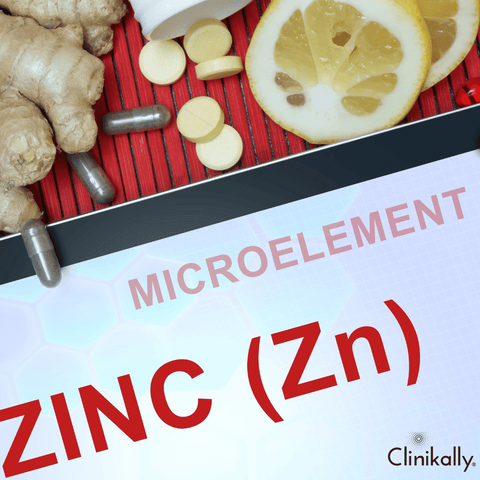
It is vital to find the correct balance of zinc sources and supplements in order to maintain optimal zinc levels without exceeding the suggested limits. Assessing your dietary zinc intake, considering your specific needs, optimising your zinc intake, monitoring your zinc status, consulting with a healthcare professional, and considering targeted supplementation, balance, and moderation are some things to consider when combining food sources and supplements. Remember that the goal is to strike a balance between dietary zinc intake and supplementation that is tailored to your unique needs. Reassess your dietary patterns on a regular basis, monitor your zinc levels, and seek continuing direction and help from a healthcare expert.





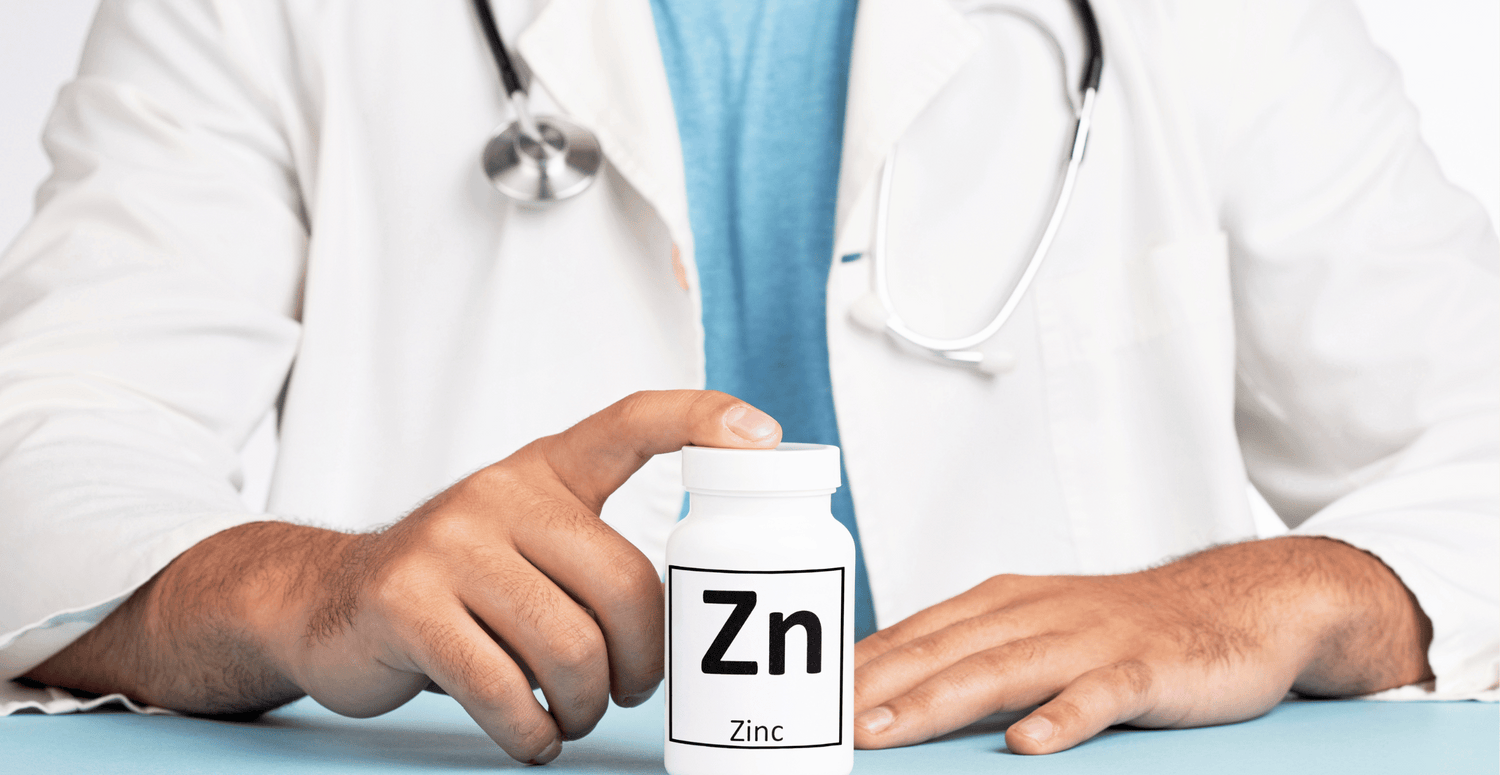



























1 comment
Stumbit
I have seen in the commercials that display “zinc is essential for fetus’s growth”. But now, I understand the importance of zinc right from the early stage. As I am a vegan, I would always take Tofu instead of paneer to add my zinc necessity.
"
I have seen in the commercials that display “zinc is essential for fetus’s growth”. But now, I understand the importance of zinc right from the early stage. As I am a vegan, I would always take Tofu instead of paneer to add my zinc necessity.
"